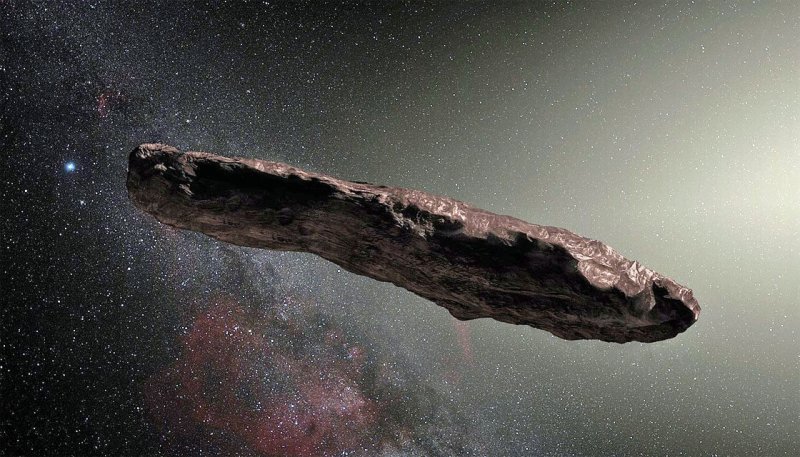One year ago, in October 2017, astronomers detected the first confirmed interstellar visitor to our solar system – an asteroid dubbed Oumuamua. The name is Hawaiian for “scout”, as if the asteroid is a messenger from a distant system.
…
[A]stronomers carefully analysing the trajectory of Oumuamua discovered (and published their findings in June 2018) that its acceleration could not be explained entirely by gravity.…
[Researchers Shmuel Bialy and Abraham Loeb argue] that Oumuamua came within 0.25 AU of the sun and 0.15 AU of the Earth. If this were random, they calculate that stellar systems on average would have to eject 10^15 such objects – which is 100 million times more than projected. I guess that means that our chance encounter with Oumuamua was a 1 in 100 million chance – that’s like winning the interstellar lottery.…
Bialy and Loeb solve the “intersellar lottery” problem by arguing that Oumuamua might be an alien probe – so it was targeted at us deliberately, perhaps to survey the Earth for signs of life.
…
I have pointed out before than whenever astronomers see something strange, or something they cannot quite explain, someone brings up the alien hypothesis. So far, every time it has turned out that a natural explanation was found. That does not mean that at some point we won’t encounter a genuinely alien phenomenon, it just means that we should be appropriately skeptical and not jump to the alien hypothesis too quickly.
Read full, original post: Oumuamua and the Alien Hypothesis































